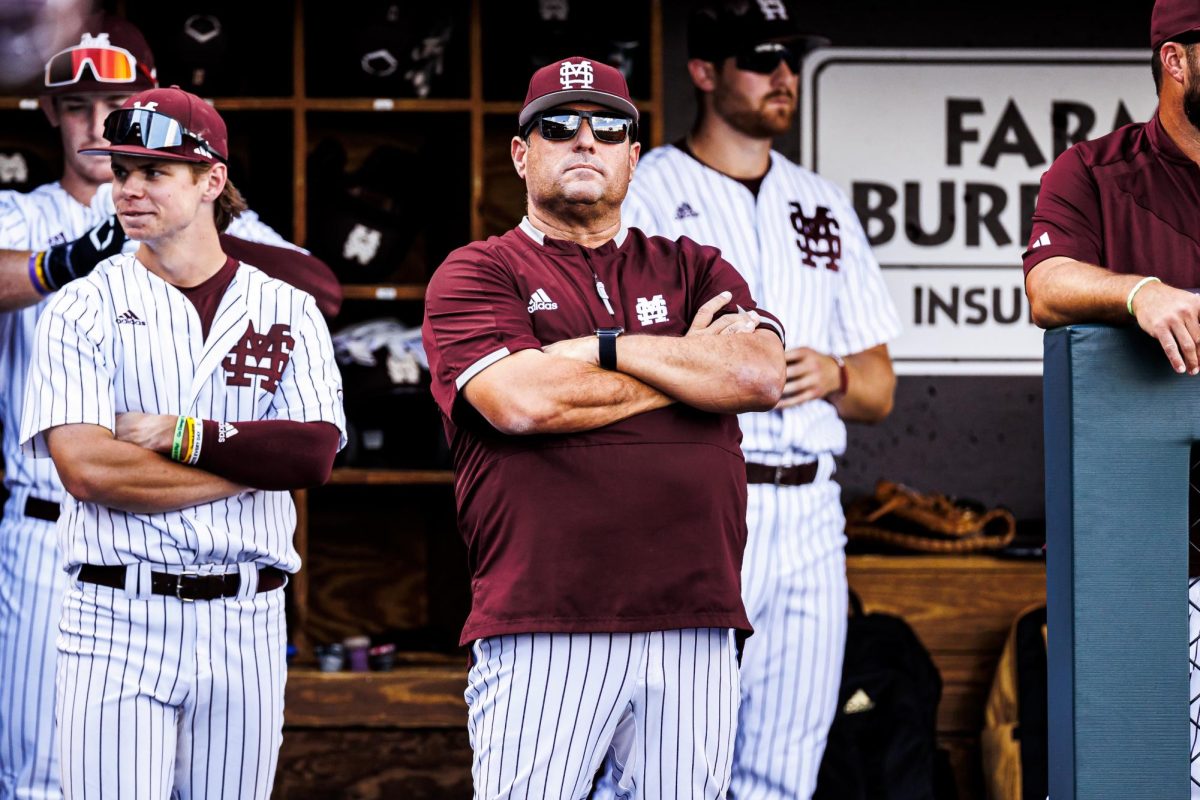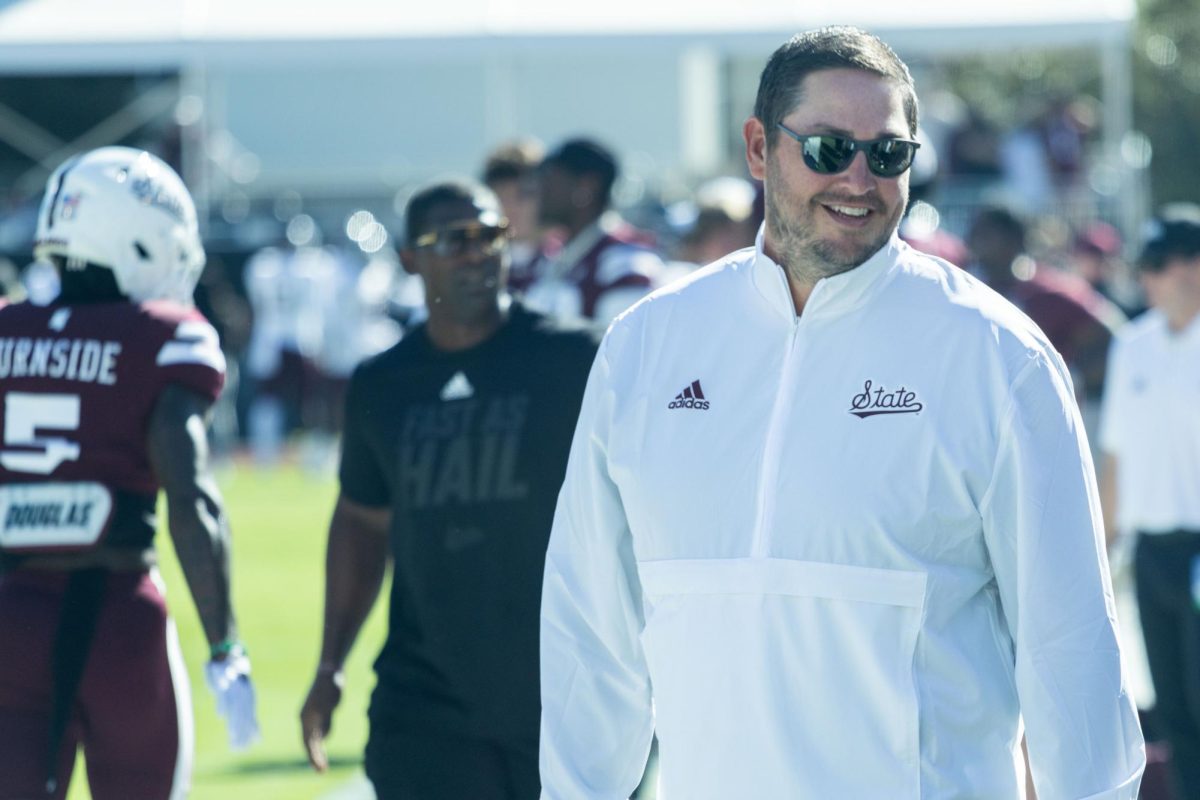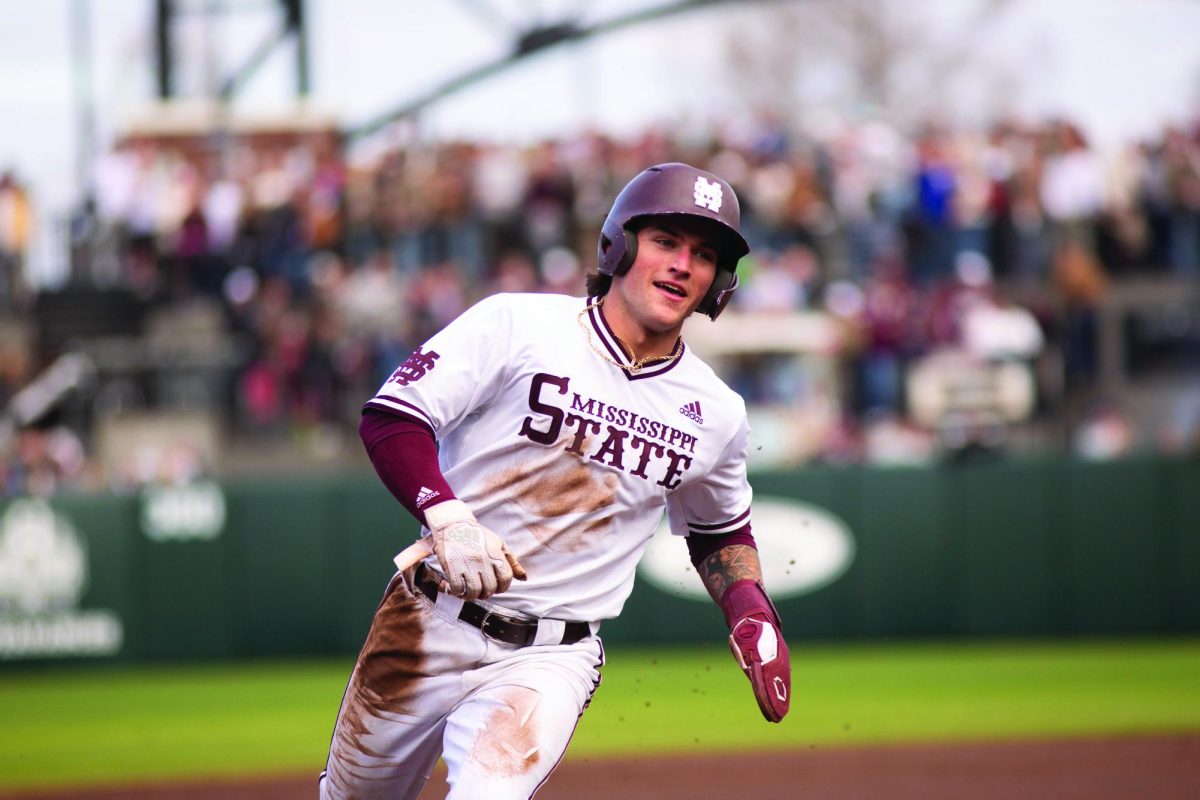It is rare, especially in the Southeastern Conference, for football to take a backseat to anything. Only significant events can slow down college football, whether it is the assassination of a president, a hurricane rummaging through a team’s city or, as we found out in 2001, the first foreign attack on American soil in 60 years.
After the terrorist attacks of Sept. 11, sports were put into a new perspective as the country adjusted to the post-9/11 world. The SEC initially decided games would go on as normal, but the league reversed its decision and joined the NFL in postponing all games scheduled for the weekend following the terrorist attacks.
Larry Templeton, Mississippi State’s athletic director at the time, was in an NCAA meeting in Philadelphia when news of the attacks broke and spent most of the ride back to Starkville in a rental car on the phone with the SEC’s other athletic directors discussing their options for the upcoming games. One of the chief concerns was whether or not teams would be able to fly to the games since all airplanes had been grounded on that Tuesday.
When games resumed the following week, it just so happened MSU would play in the first major college football game following 9/11, a Thursday night matchup against South Carolina that would be broadcast nationally on ESPN. Templeton embraced the school’s opportunity to make a statement on behalf of the American people.
“We felt and the conference felt very strongly that the SEC would make a statement that we were going to march on with life as normal,” Templeton said. “Football kind of gave an experience of everyone being able to come together at that point and place.”
Of course, even in the world of sports, it was not life as normal outside of the playing field. Security was heavily increased when Davis Wade Stadium reopened after 9/11, which marked the beginning of the new “normal” in stadium security across the United States
The area around the stadium was declared a no-fly zone, parking within 50 yards of the stadium was prohibited and rumors started to swirl that metal detectors would be present at the gates, but ultimately none were used. Now a common rule, fans were prohibited from bringing bags into the stadium. Duncan McKenzie, associate athletic director at MSU, said the school worked with many authorities to make sure the game went smoothly.
“You’re always worried about fan safety, but that brings something brand new into it,” McKenzie said. “Homeland Security is saying any large event where you have a lot of people is a security issue. We worked with our campus police, our state officials to really get them to help us with what was ‘safe.'”
An emotional tribute to the victims of the attacks took place before the game, with both teams joining together to carry an American flag over the field and sing “The Star Spangled Banner” and “America the Beautiful.” The pregame ceremonies were aired as part of ESPN’s broadcast and ended with the usual cry of “Go to hell, Ole Miss” from MSU fans being replaced with “Go to hell, bin Laden” from one fan following the national anthem.
Paul Jones, who covered the game for the Starkville Daily News said the patriotic tribute drew more applause than any other play of the game, which reflected the sentiment of the fans.
“A surreal feeling is really just the best way to describe it,” Jones said. “It was an atmosphere, but it wasn’t like a football atmosphere.; just a gathering of 50,000 people and there was a football game going on.”
The game presented a challenge for then head coach Jackie Sherrill, who still held his weekly press conference on Sept. 11. Along with helping his team make sense of what was happening in the world, Sherrill also had to make sure MSU was ready for a matchup of two Top 25 teams.
“You had mixed emotions, balancing the importance and consequence of what happened with our country, and what was transpiring,” Sherrill said. “It was kind of an emotional time, and I think that everybody, the players, the people in the stands, felt the same way.”
Between the lines, South Carolina went on to beat State 16-14 in a game that marked the beginning of the end of MSU’s success in the late ‘90s and early 2000s. The Bulldogs stumbled on to a 3-8 record in 2001, the first of six consecutive losing seasons.
But ten years later, the 2001 SEC opener is remembered much more for the events surrounding the game than anything that happened on the field. In one of college football’s most competitive leagues, it wasn’t about the competition on the field that Thursday night in September.
“It wasn’t like we were going to go out there and beat the brains out of the other team,” Templeton said. “It was more we’re going to come together, we’re going to be unified and we’re going to play a game under the spirit of great sportsmanship. Everybody was wanting to show their support for America, and it was just entirely different emotions.”
Categories:
After attacks, Bulldogs played first game post 9/11
JAMES CARSKADON
•
September 9, 2011
0
Donate to The Reflector
Your donation will support the student journalists of Mississippi State University. Your contribution will allow us to purchase equipment and cover our annual website hosting costs.
More to Discover







